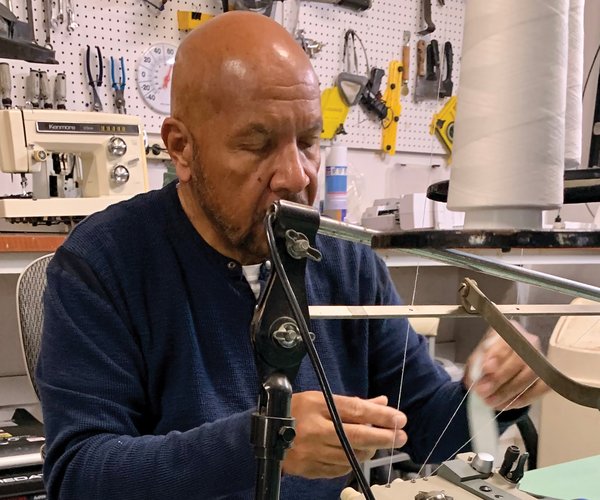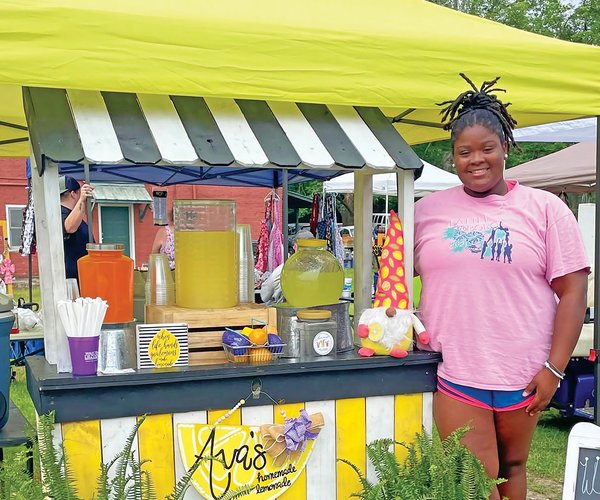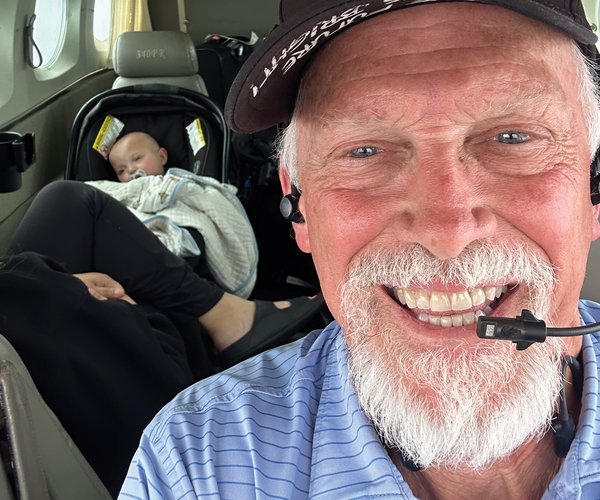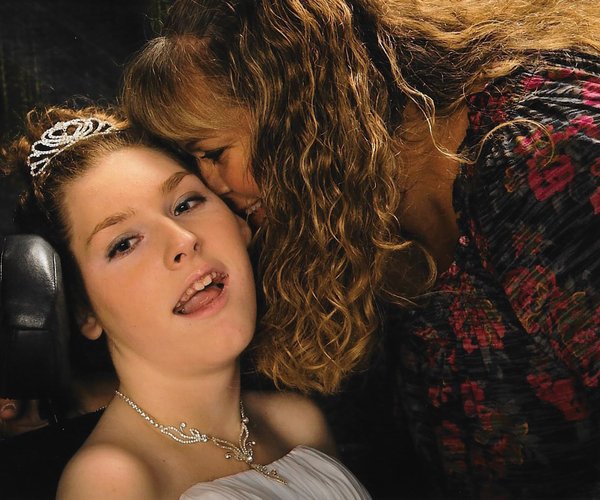The heartbeat of community arts and cultural events in Statesboro is the downtown Averitt Center for the Arts. Housed in the historic Bank of Statesboro building, the 15-year-old nonprofit has been the home of hundreds of arts events.
With a full-time staff of less than a dozen, the center could never pull off the caliber of productions and events they do without volunteers.
“Our volunteers are critical to the operation of the Averitt Center for the Arts,” said Operations Manager Tony Phillips. “We’ve utilized volunteers since we opened. I myself used to volunteer during the traditional lunch time so that others could go to lunch and not leave the phones unattended.”
Phillips said that longtime supporter of the arts Roxie Remley, former art professor at Georgia Teachers College and later Georgia Southern University, organized the first volunteers shortly after the center for opened.
“We called them ‘Roxie’s Angels,’” said Phillips. “She placed an ad in the newspaper and recruited by word of mouth. Most of the volunteers that she recruited were recent retirees and peers around her age range.”
Volunteers have a plethora of duties, like greeting guests, ushering, ticket sales, concessions, cleaning, moving props and furniture, changing marquis signs and helping with printed materials.
“Then we began reaching out to volunteers of all ages. We even have high school students now who are volunteering for class credit,” Phillips added.
The cast of volunteers grew again several years back when a partnership was formed with Statesboro’s Willingway organization.
“A big game-changer for us happened when John Williamson, a Willingway employee, was cast in an Averitt Stars Community Theater production,” said Phillips.
A transplant from New York City, Williamson said he was working there at an addiction center as a counselor and interventionist.
“I’m an alcoholic and drug addict,” said Williamson. “I’d been sober for eight years and had a relapse. As soon as it became public, they sent me to Willingway, and then to a men’s treatment center.”
Williamson spent 18 months in a men’s lodge, and then six months out of treatment, he began working at Willingway.
“A good friend who’d been in plays at the Averitt Center asked me to come audition. I thought she was crazy. I’ve never been on stage; I don’t sing; I don’t dance,” he said.
Williamson eventually gave in, because he was trying to get involved in the community and wanted to meet people outside of his job and his recovery community.
“I got the part as Drake the Butler, in ‘Annie.’ ”
It didn’t take long for Williamson to recognize the value of the center and the opportunity for those he was supervising through his job to volunteer.
“I was a big believer in the Averitt Center, as well as guys and girls getting involved in something fun and social that didn’t involve alcohol and drugs. It’s really important to recovery to be helpful to other people, to be of use to other people,” he said.
At first, most of the volunteers came from the men’s lodge and assisted with heavy lifting. But the jobs and volunteers grew until a large group from Willingway became regulars.
Rachel Morris spent almost four weeks at Willingway and 15 months at Lee Street, a women’s residential treatment center.
“I started volunteering three months after arriving at Lee Street,” Morris said. “It was my first re-introduction to normal life. In treatment, everything is controlled. But to volunteer there, to give back to the community, was freeing and so rewarding.”
Morris said she’d never seen live theater before and volunteering was her first experience with the arts. She worked for six months as a volunteer, then three months as an intern and now has been employed for almost six months as assistant to Executive Director Jamie Grady.
“People in recovery are very hardworking, diligent, managerial,” said Morris. “We persevere. We’re resilient. Service is a huge part of recovery, and we go above and beyond because we want the Averitt Center, and our recovery, to be successful. We appreciate being able to be a part of service.”
One of Morris’ primary responsibilities is the “Because You Asked” project that takes place in September. The event, which takes place during Opioid Awareness Month and centers around a play, works to bring about awareness of recovery and highlight service organizations in Statesboro that can help with recovery.
Morris said that when she began volunteering, she gained way more than she gave.
Clint Tootle was a patient at Willingway at the end of 2015 and beginning of 2016 and then took part in in-patient and out-patient services at a men’s treatment center for drug addiction and alcoholism.
“Pretty much my whole adult life, I was under the influence,” said Tootle. “I didn’t know how to do anything sober, never really worked sober,” he said.
When he got the opportunity to volunteer at the Averitt, he walked from the treatment facility every Tuesday and Thursday for two or three hours each day.
“I got up here and loved the people and loved what I was doing,” he said.
When Tootle was encouraged to seek employment, he first asked at the Averitt.
“I asked Tim Chapman if there was a job available here, and the Averitt Center hired me on as a janitor,” he said.
Tootle worked for a couple of years as janitor and moved up until he now holds the title of Assistant Technical Director.
“Willingway got me sober; the Averitt Center gave me a chance that others might not have. They allowed me to get outside of myself and help other people,” he said.
Tootle admits that it was a bit of a culture shock.
“I went from a meth lab to the theater. Being immersed in treatment for 24 hours a day, it was such a great thing to come up here, to get to see this,” he said.
Tootle said the cool part of his job is that he gets to work with volunteers who are in the same situation he was in when he began.
“I may not always know just the right thing to say, but, I’ve been where they’ve been and I can relate,” he said.
Tootle said the volunteering that led to employment was something he never dreamed of happening to him.
Rachel Elkins had no idea what the Averitt Center was, but she welcomed a chance to get away from the extended treatment program facility for a couple of hours to serve somewhere else. Once there, she said she fell in love with the place.
“I’m a singer and a history major. And I’ve always been interested in art history. Everyone was so welcoming and friendly and they put me to work answering phones, changing the marquis, cleaning. The Averitt Center gave me the feeling that ‘things are really happening here in Statesboro,’” she said.
While taking a ceramics class with Averitt Center instructor Kim Riner, Elkins asked Riner about job opportunities, and Riner helped her get a job with the after-school Art Adventures program.
“And I changed to an employee,” Elkins said proudly.
Currently the box office manager, Elkins added, “I would’ve cleaned toilets if that was the job available, because I loved it here so much. The staff could tell that I loved this place so much and was willing to pitch in anywhere.”
Elkins said her volunteer work gave her confidence and helped her regain positive self-esteem and have fun doing so.
“That’s how you gain that, by giving back to others and serving,” she said.
That confidence convinced her to audition and take part in some musicals at the theater, too.
Wes Raines’ volunteer time at the Averitt Center began as an usher for a children’s performance.
“It was a little unnerving because I was new to theater and hadn’t worked with kids much,” he said.
Raines had a background in audio engineering, so he also had a part-time gig working audio for shows.
“I was in long-term treatment and that can get boring at times. Volunteering gave me time away from the house to give back to others. I’ve seen guys who don’t get involved with something like this and they get more and more miserable. Life got significantly better, way better for me when I started volunteering,” he said.
Raines gained valuable experience with the opportunity to serve and now works as assistant lead for the Art Adventures after-school program.
“I learned a lot about kids. It opened my eyes to understand that you don’t always know what’s going on in their lives, at school or at home. It helped me understand people better,” he said.
Raines has come full-circle and often works with volunteers who are serving court-ordered service hours or those who are serving as part of their recovery program.
“And just like with the kids, you don’t always know what’s going on in the volunteers’ lives. But with my experience here at the Averitt Center, people don’t look at you as someone getting service hours. They just look at you as an usher offering assistance.”





